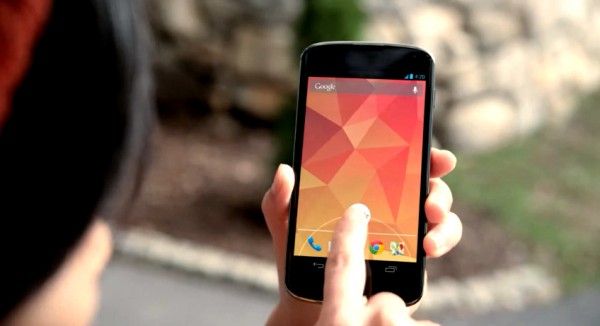Don't dismiss Google Nexus 4 for lack of LTE

Joe Wilcox is wrong. My colleague and I both own the Samsung-made Galaxy Nexus. So in theory he should see the light -- Nexus 4 is so many times better than its predecessor. For the first time in a few years Google has the brass to release a smartphone that will no longer be left for dead in a month or two by fellow Android smartphones.
Before you go all out and say that I might be insane for dismissing 4G LTE, let me be clear -- not many need it. US-hung journalists like to boast about the capability in reviews praising the high speeds. But that does not reflect the reality around the globe, where fast data speeds are not the norm nor will they be in the next year or so. Nexus 4 is so much more than missing LTE cellular connectivity, and that's rather obvious when comparing it with its predecessor. I love the Galaxy Nexus, but even I have to admit that it's rather outdated for the end of 2012.
The main problem with the Galaxy Nexus LTE, which Sprint and Verizon offer in the United States, was and still is the rather appalling update time. Google released Android 4.1 Jelly Bean in mid-July, and while the Galaxy Nexus HSPA+ model received the update soon after the former did not. In fact Verizon users were able to officially upgrade to the then-latest version until around mid-September. Android 4.1.2? Forget about it.
One of the most important principles behind a Nexus device is timely updates. Considering the past issues with Android upgrades, do you really want a separate model with LTE? I honestly wouldn't prefer it over timely updates. Then there is the problem of a higher price, a given considering the already low entry point for the 8GB model.
The Price is Right
The Google Nexus 4 starts at $299 for the 8GB model, and goes all the way to a "whopping" $349 for the 16GB model. That's not much, that's cheap actually. For a carrier-free smartphone with amazing hardware specifications I can honestly say that even $349 is rather cheap. LTE would have only meant more money out of the pocket, and judging by what Google is doing with the Nexus line I'd venture to say that's not its style now. Think about it.
I've had the Galaxy Nexus for a few months now and it's let me down in a few key areas. The Nexus 4, which LG makes, has the potential to make up for it.
The HSPA+ model comes with a rather tiny 1750mAh battery, which is insufficient for such a device. If I barely use it then battery life is pretty good, topping more than 36 hours. That's with a custom ROM and kernel, which from what I have experienced barely drains power when idling. But if I really "put my foot down" then I would have to use the charger in less than 10 hours. The Nexus 4 packs a 2,100mAh battery, which is still larger by any measure. The Qualcomm-made chipset is fairly decent in this regard on the Optimus G as well.
More is Better
You might think that the Galaxy Nexus "mighty" 4.65-inch Super AMOLED display would be amazing. Except it is not, and I mentioned it in my review as well: "At low brightness, the display appears to be grainy, which has been a known problem since its introduction." Compared to the one found in the Samsung Galaxy S III, which I really enjoy, the GN's display is simply subpar.
Have I mentioned that the Nexus 4 has the same display as the LG Optimus G? That means a 4.7-inch TrueHD IPS panel with a resolution of 1280 by 768, so one can hardly dispute the fact that at least on paper it is as good. The HTC One X has a similar type of display, and from my own experience that's miles better than the one on the Galaxy Nexus.
I could go on and mention the incredibly fast 1.5GHz Qualcomm Snapdragon S4 Pro processor that will run rings around the old 1.2GHz TI OMAP CPU that powers the Samsung-made device. But that's not the point.
The Nexus 4 has the credentials to turn the Galaxy Nexus into a bad memory. For people like me that see the latter's major flaws and want to move on to a more modern smartphone that stays true to its stock Android roots, the LG-made device can't be dismissed. Do you really think that the lack of LTE really matters? I don't.
